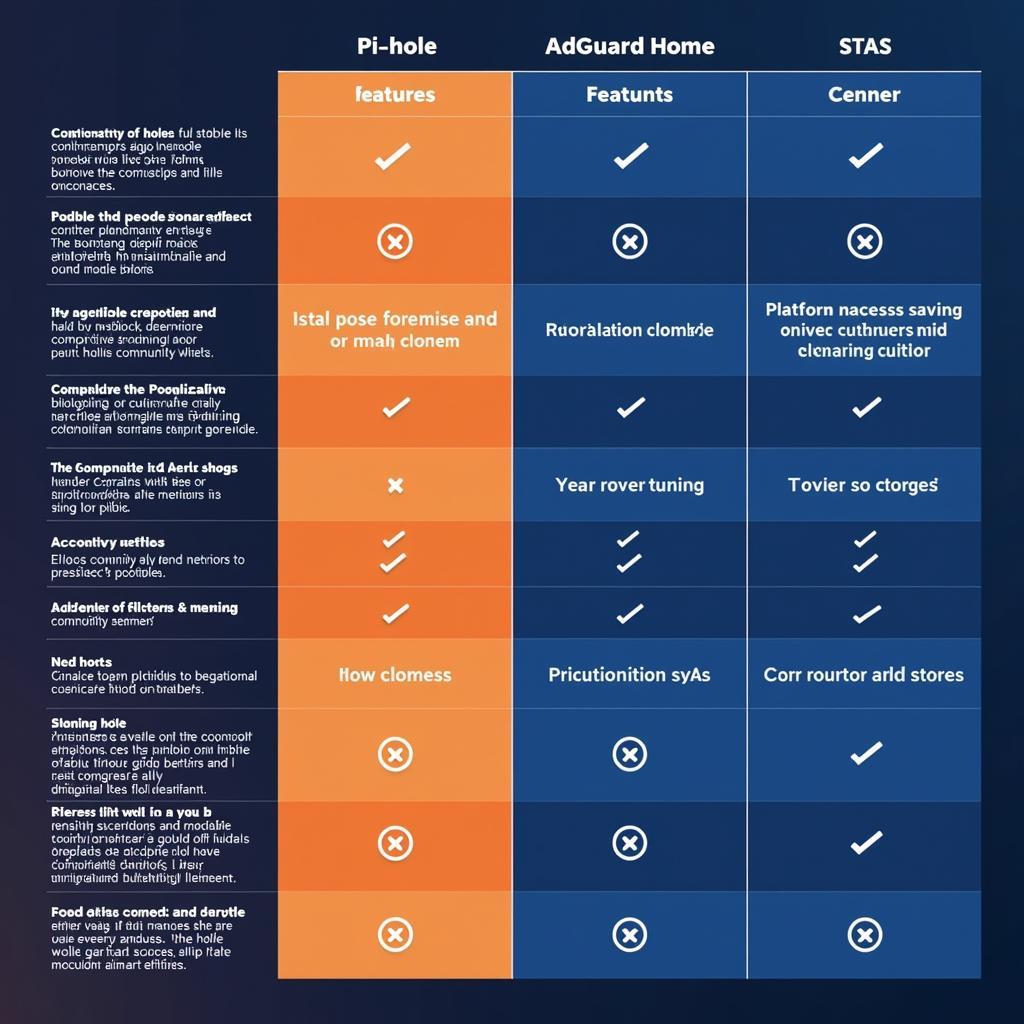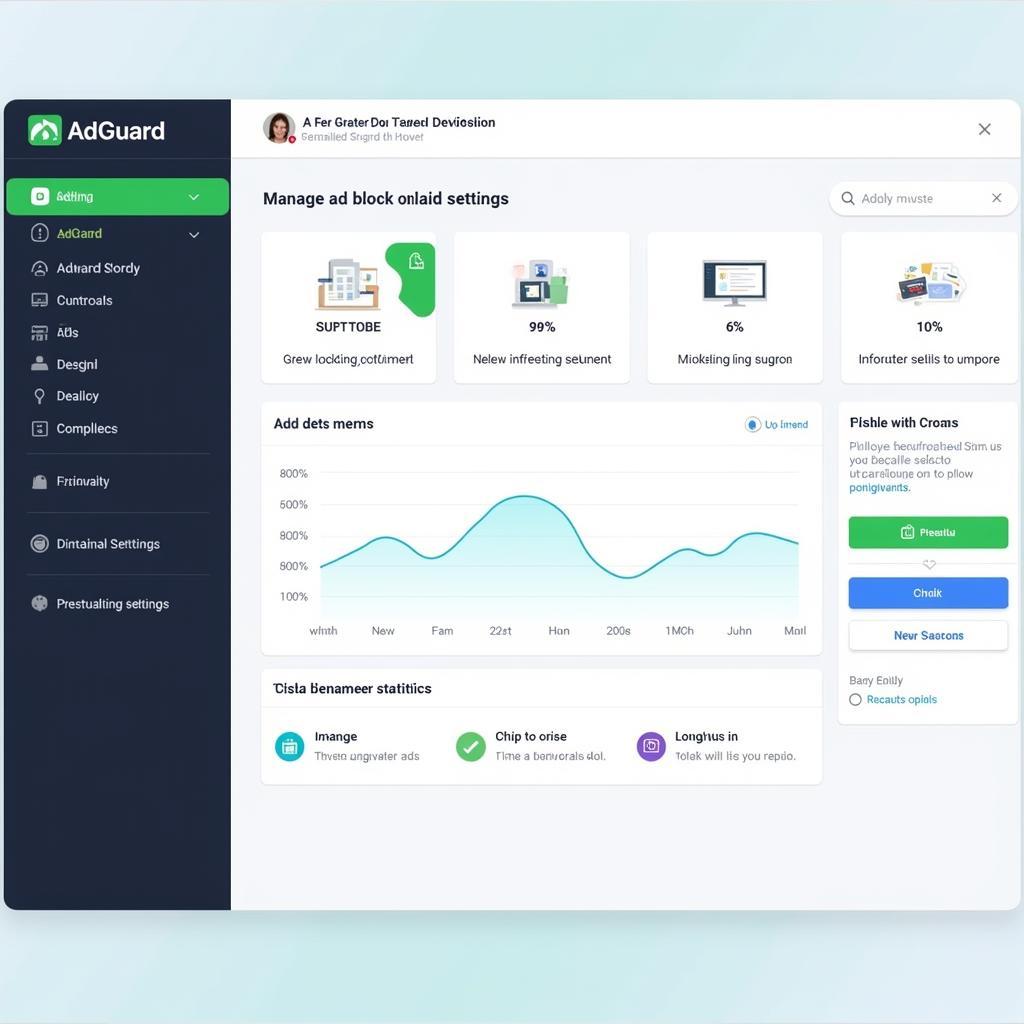In the ever-evolving landscape of online privacy and security, ad blockers have become essential tools for many internet users. Two popular contenders in this arena are Pi-hole and AdGuard Home, both offering robust features and promising an ad-free browsing experience. But which one reigns supreme? This comprehensive comparison of Pi-hole vs AdGuard Home will equip you to make an informed decision based on your specific needs and technical prowess.
Unmasking the Ad Blocking Champions: Pi-hole and AdGuard Home
Before diving into the nitty-gritty comparison, let’s shed light on the fundamentals of these ad-blocking titans.
Pi-hole, a DNS-based ad blocker, operates at the network level, acting as a gatekeeper for your entire home network. By intercepting DNS requests for known ad servers, Pi-hole effectively prevents your devices from loading ads, resulting in faster page load times and reduced bandwidth consumption.
AdGuard Home, on the other hand, is a fully-fledged network-wide ad and tracker blocking DNS server. Similar to Pi-hole, it utilizes DNS sinkholing to block ads but extends its capabilities to offer advanced features like network-wide protection against phishing and malware.
Pi-hole vs AdGuard Home: A Head-to-Head Feature Showdown
Choosing between these ad-blocking powerhouses requires careful consideration of their distinct features. Let’s break down the key differences:
1. Installation and Setup
-
Pi-hole: Traditionally favored by Linux enthusiasts, Pi-hole requires some technical know-how for installation, often involving command-line usage. However, pre-configured Raspberry Pi images have made the process more user-friendly.
-
AdGuard Home: Boasting a more straightforward installation process, AdGuard Home offers user-friendly installers for various operating systems, including Windows, macOS, and Linux, making it accessible to a wider audience.
2. User Interface and Control
-
Pi-hole: While Pi-hole’s web interface is functional and provides essential information, it lacks the visual appeal and intuitive design of AdGuard Home.
-
AdGuard Home: AdGuard Home shines with its modern and intuitive web interface, offering detailed statistics, customization options, and easy management of blocked domains and clients.
3. Ad Blocking Capabilities
-
Pi-hole: Relies primarily on community-maintained blocklists, which users can customize by adding or removing lists. It effectively blocks ads on websites and within apps that use DNS for content loading.
-
AdGuard Home: Similar to Pi-hole, it utilizes blocklists but also incorporates its own database for ad blocking. Additionally, it offers advanced filtering options, enabling users to block specific elements within web pages, social media widgets, and even push notifications.
{width=1024 height=1024}
4. Customization and Flexibility
-
Pi-hole: Allows for creating custom blocklists and whitelists, providing granular control over blocked domains. It also supports regex filters for more complex blocking rules.
-
AdGuard Home: Provides similar customization options, including the ability to create custom filtering rules and whitelist specific domains or IP addresses. Its user-friendly interface makes customization more approachable for non-technical users.
5. Platform Compatibility
-
Pi-hole: Designed to run on Linux-based systems, Pi-hole typically operates on devices like Raspberry Pi. However, it can be installed on other platforms with some effort.
-
AdGuard Home: Offers broader platform compatibility, with official installers for Windows, macOS, and Linux, making it a more versatile solution for diverse network environments.
6. Community and Support
-
Pi-hole: Backed by a large and active community, Pi-hole users benefit from extensive documentation, forums, and readily available support from fellow users.
-
AdGuard Home: While its community might be smaller compared to Pi-hole’s, AdGuard Home provides official documentation, forums, and active support channels for assistance.
Choosing Your Ad-Blocking Champion
Both Pi-hole and AdGuard Home excel in providing robust ad-blocking solutions, each with strengths catering to different user preferences and technical comfort levels.
Choose Pi-hole if you:
- Prefer a lightweight and efficient DNS-based ad blocker.
- Are comfortable with command-line interfaces and basic Linux administration.
- Seek a cost-effective solution, especially if you own a Raspberry Pi.
- Value an active community and extensive documentation for support.
Choose AdGuard Home if you:
- Prioritize a user-friendly experience with an intuitive web interface.
- Seek advanced features beyond basic ad blocking, such as malware protection.
- Require broader platform compatibility for your network devices.
- Prefer official support channels and comprehensive documentation.
{width=1024 height=1024}
Frequently Asked Questions (FAQs)
Q1: Can I use Pi-hole and AdGuard Home simultaneously?
While technically possible, running both solutions simultaneously is not recommended. It can lead to conflicts and unexpected behavior.
Q2: Will using an ad blocker affect website functionality?
In some cases, ad blockers might interfere with website elements that rely on similar scripts used by ads. Most ad blockers offer whitelisting options to re-enable content on specific websites.
Q3: Can ad blockers protect against all types of online threats?
Ad blockers primarily focus on blocking ads and trackers. While they might offer some protection against malicious websites, they are not a substitute for comprehensive security software like antivirus and firewalls.
Q4: Are there any privacy concerns with using these ad blockers?
Both Pi-hole and AdGuard Home are open-source projects, allowing anyone to inspect their code for transparency. Additionally, they operate locally on your network, meaning your DNS requests are not routed through third-party servers.
Conclusion: Making the Right Choice for an Ad-Free Experience
Ultimately, the best ad blocker for you depends on your individual needs and priorities. Pi-hole appeals to tech-savvy users seeking a customizable and lightweight solution, while AdGuard Home caters to those looking for a user-friendly and feature-rich experience. By carefully considering the strengths and weaknesses of each option, you can confidently choose the best ad-blocking champion to reclaim your online privacy and enjoy a faster, cleaner browsing experience.
Need help choosing the right ad blocker or have questions about our other services? Contact us!
Phone Number: 0902476650
Email: [email protected]
Address: 139 Đ. Võ Văn Kiệt, Hoà Long, Bà Rịa, Bà Rịa – Vũng Tàu, Việt Nam.
Our dedicated customer support team is available 24/7 to assist you.






